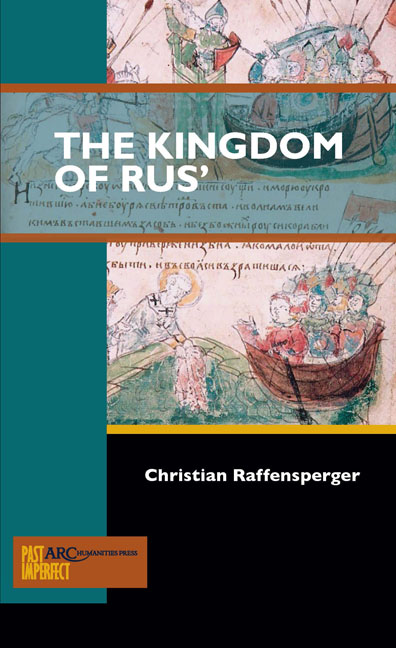Book contents
- Frontmatter
- Dedication
- Contents
- Acknowledgements
- Timeline of Events
- Introduction: The Problem with Names
- Chapter 1 The Place of Rus’ in Europe
- Chapter 2 The Historiography of the Translation of Kniaz’
- Chapter 3 Titulature and Medieval Rulers
- Chapter 4 What Was a Kniaz’?
- Chapter 5 Medieval Titulature and Rus’
- Chapter 6 Titles for Other Medieval Rulers in Rusian Sources
- Conclusion: Consequences and Resolution
- Further Reading
Introduction: The Problem with Names
Published online by Cambridge University Press: 14 January 2021
- Frontmatter
- Dedication
- Contents
- Acknowledgements
- Timeline of Events
- Introduction: The Problem with Names
- Chapter 1 The Place of Rus’ in Europe
- Chapter 2 The Historiography of the Translation of Kniaz’
- Chapter 3 Titulature and Medieval Rulers
- Chapter 4 What Was a Kniaz’?
- Chapter 5 Medieval Titulature and Rus’
- Chapter 6 Titles for Other Medieval Rulers in Rusian Sources
- Conclusion: Consequences and Resolution
- Further Reading
Summary
For better or for worse, names define concepts, ideas, people, and entities of all sorts. Whether the issue is the title of a medieval ruler or Pluto's designation as a planet, names once given become enshrined in the imagination and become difficult to change, or for those changes to become accepted. There have been many books and journal articles written over the course of hundreds of years that have designated the ruler of Rus’ as a “prince” or “duke” and thus the territory he rules as a “principality” or “duchy.” On rare occasions, there have been scholars who have differed from this consensus, such as Andrzej Poppe, who used “king” for the ruler of Rus’, with the rationale that,
Since, in early Medieval Europe, the Slavic title kniaz’ was equivalent to the Latin title rex, and since the Rus’ian rulers are constantly referred to in medieval sources as reges, I break here with the historiographic tradition of the nineteenth and twentieth centuries and return to the medieval usage and meaning of this title.
But Poppe did not discuss the issue further. Similarly, working on thirteenth-century Galicia (in western Rus’/modern western Ukraine), Mykola Andrusiak made the argument that one of the prominent rulers of Galicia in that time should be called a king. While these rare scholars have bucked the tradition of translating kniaz’ as “prince,” there has, until now, not been a concerted argument about the use of translation and its relationship to the shaping of the identity of Rus’. Thus, this book will attempt to make what seems like a complex argument: that the ruler of Rus’ should be called a king, not a prince; and thus Rus’ should be called a kingdom, not a principality.
The process of overturning literally centuries of usage is a difficult one, but this book demonstrates that Rus’ of the eleventh and twelfth centuries was not only part of medieval Europe but, in fact, a kingdom. Furthermore, it shows the consequences that making such a seemingly small change will have on our modern interpretation of what medieval Europe looks like. However, making such an enormous change is difficult, and requires stepping through discussion of titles, language, and the study of the Middle Ages.
- Type
- Chapter
- Information
- The Kingdom of Rus’ , pp. 1 - 8Publisher: Amsterdam University PressPrint publication year: 2017



